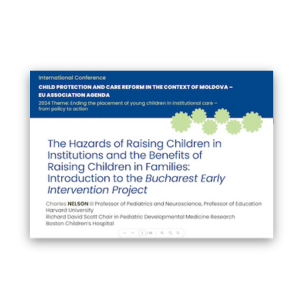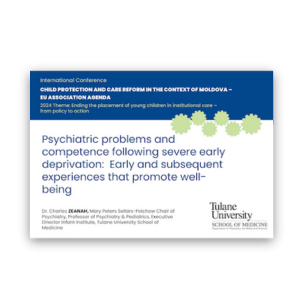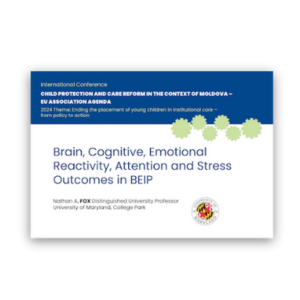2024 Theme: Ending the placement of young children in institutional care – from policy to action
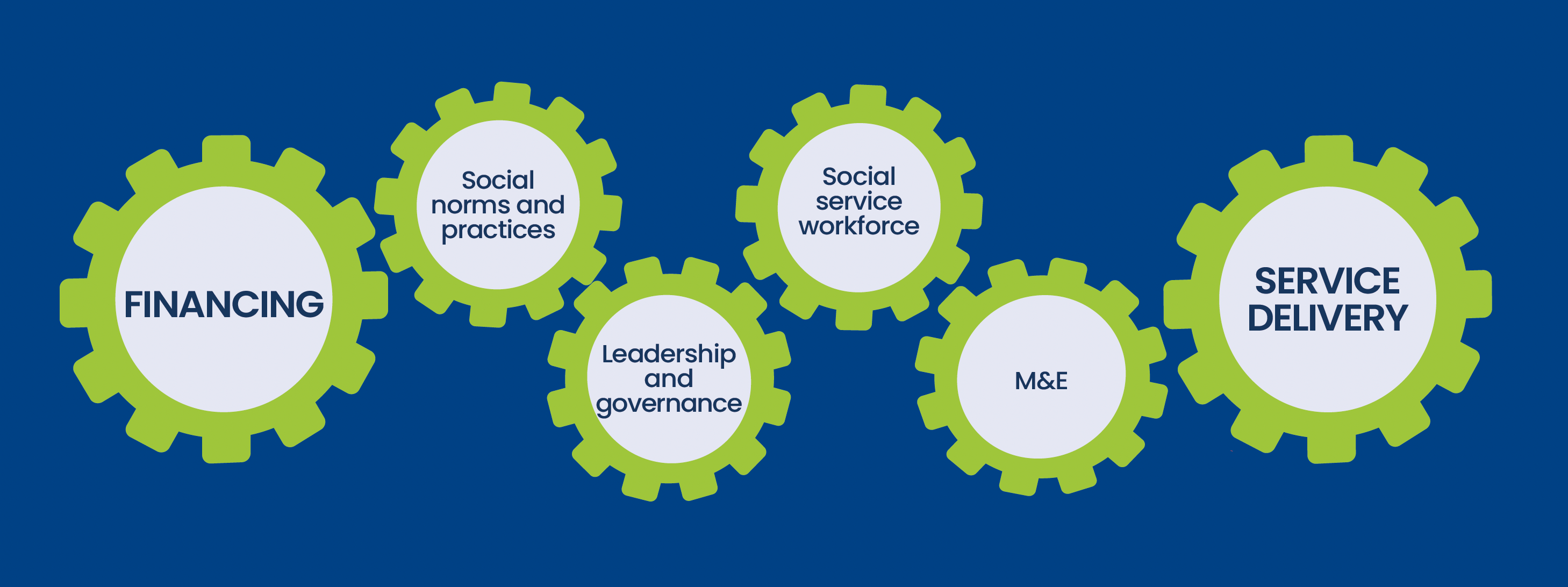
Over the last fifteen years, Moldova has made remarkable progress in reforming its child care and protection system, reducing the number of children in institutional care to less than 700 in 2022 (down from 17,000 in 2003). Boasting a strong legal and policy framework, a 5-year National Child Protection Program (2022-2026), and broad support of the international community, Moldova’s goal of zero children in institutions and a strong social service system is achievable in the near future. Notably, the EU-Moldova Association Agenda includes a requirement to finalize the deinstitutionalization of children and develop alternative forms of care.
Despite Moldova’s commitments and achievements, there remain gaps in policy and practice that continue to allow for the placement of children in institutions, including young children and children with disabilities. More than eight decades of research document the adverse effects of child separation and institutionalization of young children. Research and practice show that 1) early interventions for young children lead to significant recovery for some developmental outcomes and 2) transition to family-based care is associated with lasting change that has significant implications for the long-term health of society.
Within this context, the Ministry of Labor and Social Protection, in cooperation with Changing the Way We Care (CTWWC) Moldova and local partner CCF Moldova, organized an international conference on March 21, 2024 titled “Child protection and care reform in the context of Moldova – EU Association agenda: Ending the placement of young children in institutional care – from policy to action.” The conference was organized in partnership with the Ministry of Health, the Ministry of Education and Research, UNICEF, Keystone Moldova, and Partnerships for Every Child.
During the conference, more than 100 participants, representing the wide array of care reform actors and decision makers in the central and local government, NGOs, academia and international experts, reviewed findings of the Bucharest Early Intervention Project and national research conducted in 2023 on the potential for a moratorium on placing children 0-6 in institutional care. The conference culminated in participatory discussions with the goal of agreeing on a roadmap for priority actions to prevent and end institutionalization of children aged 0-6 in Moldova as well as specific next steps to be taken by the government and relevant stakeholders.
The planning, implementation, and subsequent next steps of this conference exemplify CTWWC Moldova’s collective impact approach, emphasizing the importance of intersectoral collaboration to provide essential support for children and families and end placement in residential care.
Changing The Way We Care℠ is implemented by Catholic Relief Services and Maestral International, along with other global, national and local partners working together to change the way we care for children around the world.
Our principal global partners are the Better Care Network and Faith to Action.
CTWWC is funded in part by a Global Development Alliance of USAID and the GHR Foundation.
Need to know more? Contact Changing the Way We Care at info@ctwwc.org or visit changingthewaywecare.org
English Resources:
Conference brochure |
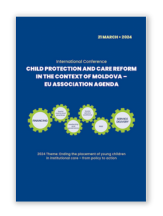 |
Video recording of Jānis Mažeiks, EU Ambassador to Moldova |
|
Conference video |
|
Conference report |
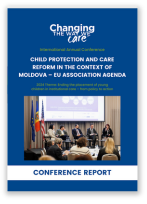 |
Roadmap |
 |
Background research |
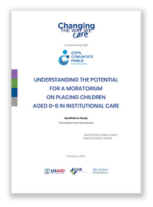 |
Presentations: |
|
Dr. Charles A. NelsonHarvard Graduate School of Education, Professor of Education; Professor of Pediatrics and Neuroscience, and Professor of Psychology in Psychiatry, Harvard Medical School; Richard David Scott Chair, Boston Children’s Hospital
|
|
Dr. Charles Zeanah, Mary Peters Sellars-PolchowChair of Psychiatry, Professor of Psychiatry & Pediatrics, Executive Director Infant Institute, Tulane University School of Medicine
|
|
Dr. Nathan FoxDistinguished University Professor in the Department of Human Development and Quantitative Methodology, University of Maryland Program in Neuroscience and Cognitive Science
|
|

